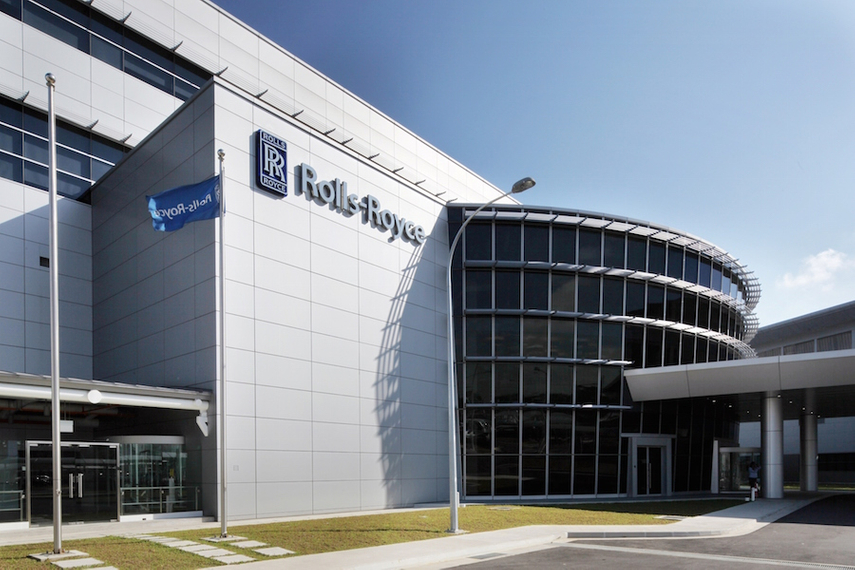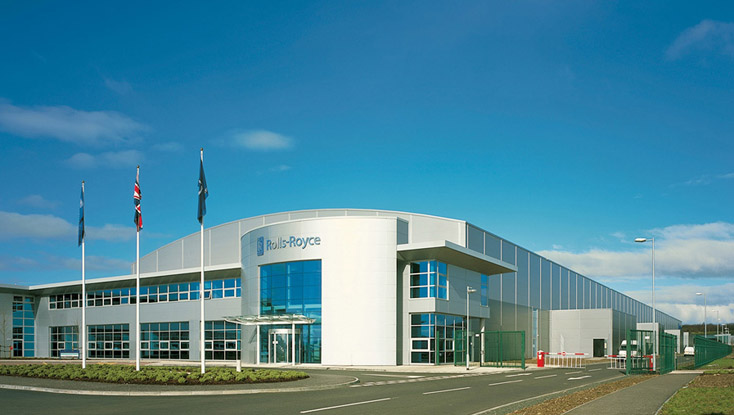Rolls-Royce Holdings has forged an innovative partnership with ASCO Carbon Dioxide and Landmark Power Holdings to advance scalable carbon capture solutions. In a strategic move that supports the clean energy transition, the industry leaders will combine their expertise to develop breakthrough technologies allowing electricity to be generated while capturing harmful CO2 emissions from Rolls-Royce’s mtu gas generators.
To empower hard-to-decarbonize sectors on their journey to net zero, the collaborative project will design economical carbon capture methods applicable at a commercial scale. ASCO CEO Ralph Spring expressed enthusiastic support, calling the joined effort a “huge step” in unlocking clean power for industries in need.

Representing a key priority for Rolls-Royce’s expanding stationary energy activities, the collaboration represents an opportunity to play a larger role in evolving power markets through cooperation. Tobias Ostermaier, who leads the company’s power solutions segment, views carbon capture devices deployed with mtu units as crucial building blocks for achieving climate targets worldwide.
By enabling reliable electricity services to act as a supplement enhancing renewable adoption, the gas generator technology can serve the low-carbon transition in an affordable, seamlessly integrated manner according to Ostermaier. The captured CO2, he notes, will enter beneficial reuse in dynamic sectors intensifying decarbonization drives like food production, e-fuel synthesis, and sustainable aviation fuel pipelines.
Significantly, the consortium’s first joint undertaking is now emerging – a pioneering clean power station under development in the UK incorporates their combined CO2 sequestration and power generation expertise. The facility promises to supply both grid and neighborhood demand while generating food-grade carbon dioxide through processing engine outflows.
Landmark Power executive Mick Avison expressed pride that the landmark plant, in supporting domestic energy security and climate action aims, illustrates the partnership’s shared “mission to combat climate change.” For Rolls-Royce, the energy venture exemplifies its dedication to delivering technically advanced solutions addressing society’s most pressing concerns.

A world leader in complex energy systems for aerospace and defense, Rolls-Royce brings extensive engineering experience in designing and commissioning projects with exacting safety standards. Headquartered in Germany, the multinational corporation has a global workforce exceeding 10,000 and serves more customers than any competitor with products installed in over 150 nations.
After GE Aviation, Rolls-Royce is the planet’s second-largest manufacturer of plane engines, powering civilian fleets for over 250 airlines. It also equips 160 military forces worldwide. Additionally, some 40,000 power generation systems from the firm are energizing critical facilities and infrastructure. This track record affirms Rolls-Royce as a proven provider of mission-critical energy services.
With the scope to influence positive environmental change, Rolls-Royce aims for net-zero emissions by 2050 through targeted goals like making operations carbon neutral by 2030. More than 75% of evolving R&D spending will center on low-carbon technologies by 2025. The company also pledges that all-new airplane engines will be certified as fully compatible with sustainable aviation fuels within the next year.
These ambitions and partnerships like the one unveiled with ASCO and Landmark, underscore Rolls-Royce’s Chief Sustainability Officer Jaime Martinez Amparan’s assertion that as a global power innovator, “we have a fundamental role to play in creating an inclusive, resilient net-zero future.” The multi-faceted collaboration epitomizes Rolls-Royce’s holistic, cross-sectoral approach to accelerating progress.
Speaking with Energy Digital magazine, which profiles the evolving energy landscape, Tobias Ostermaier reinforced how carbon capture arrangements attached to tried-and-true gas turbine assets can supply dependable electricity while slashing emissions. The project represents the kind of pragmatic, scalable solutions the period demands according to the executive.
For Landmark Power Holdings director Mick Avison, the nascent UK plant demonstrates the partners’ shared desire to take part in “combatting climate change and promoting clean energy practices.” Once live, the facility will support regional communities and industries transitioning away from fossil resources, providing a model for duplication worldwide.
According to Ralph Spring of CO2 giant ASCO, the coalition broke new ground, taking “a huge step” to make emission removal technologies available and cost-beneficial to polluting sectors. The worldwide push for net zero will require participation across many domains, highlighted Spring, making such across-industry collaborations critical.
With contributions from global leaders in energy, machinery, and carbon engineering, observers agree the integrated project portends further successful team-ups. Leveraging specialized strengths while pursuing the UN’s sustainability development goals, allies like Rolls-Royce, ASCO, and Landmark show the level of commitment and innovation demanded for meaningful climate progress.
In sum, this strategic partnership exemplifies the open-minded cooperation, emphasizing practical solutions, that experts urge from all sectors. By marrying established energy sources to validated carbon capture methods, the three firms model an approach supporting economies and jobs through the energy transition. Their first joint plant, soon producing both power and purified CO2 in the UK, proves such integrated visions can become reality with committed collaboration.
Rolls-Royce’s reputation as a provider of mission-critical power solutions is anchored by decades of experience designing and delivering reliable energy systems for transportation. With 250 commercial airline customers and aircraft engines powering fleets worldwide, Rolls-Royce is widely trusted to keep global travel and trade flowing smoothly.
In addition to air transport, Rolls-Royce energizes defense operations for 160 militaries with specialized engine applications. The company’s durable power generators also electrify over 40,000 facilities across mission-critical industrial sectors. This diverse customer base of thousands worldwide depends on Rolls-Royce’s engineering prowess daily.
Now headquartered in Germany and employing a global workforce of 10,500+ spread across 48 nations, Rolls-Royce impacts 150+ countries through its local partnerships and international supply chains. As a major job creator with an international footprint, the company recognizes its role in driving inclusive economic development worldwide.
While upholding its reputation as a leading power provider, Rolls-Royce acknowledges sustainability responsibilities through science-aligned commitments. Aiming for carbon neutrality by 2030 and net zero by 2050 with new products slashing lifetime emissions by 35% by 2030, research priorities are adjusting accordingly.
Sustainable goals extend to aviation as well – Rolls-Royce pledges that all-new airplane engines will be compatible with viable alternative fuels like sustainable aviation fuel by 2023. These ambitious targets signal the firm’s seriousness about decarbonizing diverse sectors through technology solutions.
Critical to such efforts is productive partnerships aligning expertise, like Rolls-Royce’s growing collaboration with ASCO Carbon Dioxide and Landmark Power Holdings. By working closely with these clean energy specialists, Rolls-Royce multiplies its impact by developing integrated carbon removal and renewable power generation.
The first joint project underway in the UK exemplifies this integrative approach – the pioneering facility will supply local energy needs while running proven gas engine technology and new carbon capture processes to sequester emissions.
Producing food-grade carbon dioxide as a byproduct highlights opportunities for future carbon utilization too. As decarbonization unlocks new value chains, these industry allies are well-positioned to harness carbon for sustainable production globally.
Landmark Power Holdings founder Mick Avison expressed optimism the UK demonstrator plant could serve as a reproducible model worldwide. By showcasing carbon-free power and recovery is commercially viable at scale, more regions may feel confident investing in similar facilities.
ASCO Carbon Dioxide CEO Ralph Spring concurred collaboration “is a huge step” empowering industries to transition away from fossil resources affordably with proven solutions. Partnerships developing versatile decarbonization packages will accelerate corporate climate action, in his view.
Writing in Energy Digital magazine, which reports on global sustainability and energy transition challenges, journalist Charlie King conveyed how the arrangement supports Rolls-Royce’s goals of being a driving partner for mitigating climate change.
By leveraging each organization’s specialized strengths, King wrote, the coalition exemplifies the benefits of cross-industry teamwork pursuing practical solutions, as opposed to unilateral approaches. Their cooperation could thus inspire more alliances tackling carbon removal together.
Energy Digital and its events like Sustainability Live connect sustainability leaders confronting the demanding task of reworking infrastructure supplying worldwide energy needs more cleanly and equitably over just three decades. Multi-dimensional challenges require combined efforts.
This feature therefore provided a platform amplifying inspiring collaboration that united companies at the vanguard of supply chains powering economies and daily life toward low-carbon viability. By promoting such teamwork, media plays an important role in catalyzing still broader change.
In showcasing technology and policy development supporting Rolls-Royce’s pledge “to help create a resilient, inclusive, net zero carbon future,” this coverage highlighted the growing momentum for integrated solutions across traditionally disparate domains and sectors of our society.

